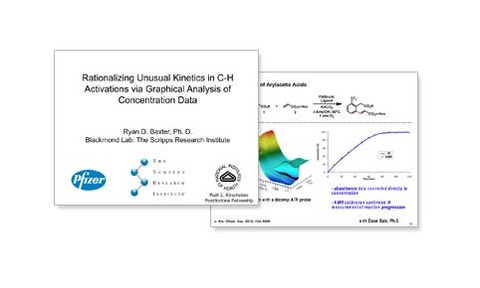
Mettler Toledo has launched an on-demand webinar on ’Rationalising Unusual Kinetics in C-H Activations’.
Presented by Ryan Baxter, assistant professor, University of California, the webinar focuses on a graphical-analysis approach called Reaction Progress Kinetic Analysis (RPKA) to understanding unusual kinetics.
The method uses robust information gained via modern Process Analytical Technology (PAT) to develop a precise understanding of reaction kinetics in fewer experiments.
Traditional methods for understanding catalysed reaction kinetics typically require many chemical reactions run under artificially high concentrations of various reaction components.
RPKA can provide similarly useful information using simple graphical depictions for significantly faster optimisation and more cost-effective research and scale-up.
In traditional methods for defining kinetics, several analogous reactions are run with slight concentration differences. The subsequent analysis of a single data point from each experiment—for example, percent yield or selectivity factor—gives only partial understanding.
Additional experiments must be run to gain useful information. This can become a lengthy process that consumes high amounts of expensive raw materials.
The high-density data collected in a single reaction monitored with PAT, such as the Mettler Toledo ReactIR, provides a wealth of reaction information that can give real insight into reaction kinetics from the very first experiment.
In the webinar, RPKA is shown to provide a solid methodology to do so using the approximately 90% of data usually ignored in traditional kinetics.
A palladium-catalysed C-H activation chemistry chosen for its unique kinetics is explored in the 17-minute presentation.
However, the method detailed can be applied to other catalytic systems for accurate mechanistic work-ups via simple visual inspection of novel graphical manipulations.






